A trauma-informed online ECO-system for your organisation and its people.
Change doesn't land on all nervous systems equally.
Some of your best people may have trauma impacted nervous systems.
Help them bring their best self to work.
Some of your best people may have trauma impacted nervous systems.
Help them bring their best self to work.
Write your awesome label here.

COVID19 global pandemic = many organisations, staff, customers and communities have had experiences that could be viewed as traumatic.
help trauma impacted people rewire & reset
Talk with me about making Rewire 4 Life available for your people
Help your trauma impacted people learn skills and processes to rewire their brain and nervous system to support greater resilience and capacity to operate as their best self.
Your staff or customer groups can be facilitated through a 12 or 26 week program of trauma informed skill building and personal processing, concluding with the 'Integrated You' module to strengthen capacity to operate from their most authentic and present moment available self.
Your staff or customer groups can be facilitated through a 12 or 26 week program of trauma informed skill building and personal processing, concluding with the 'Integrated You' module to strengthen capacity to operate from their most authentic and present moment available self.
Write your awesome label here.
Based on neuroscience of trauma and attachment
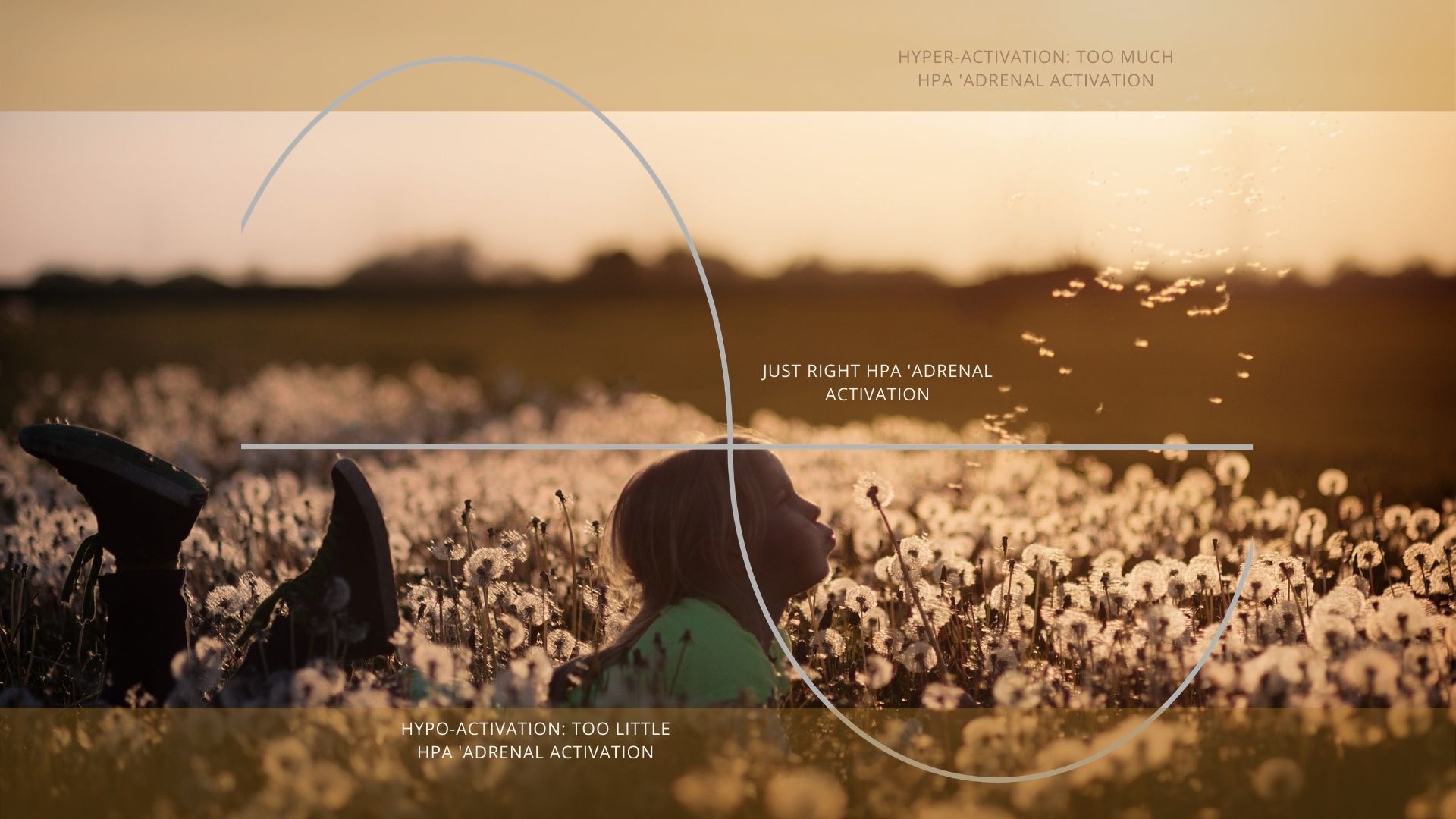
Promoting whole brain coherence and increased range of safe connection.
Signature processes
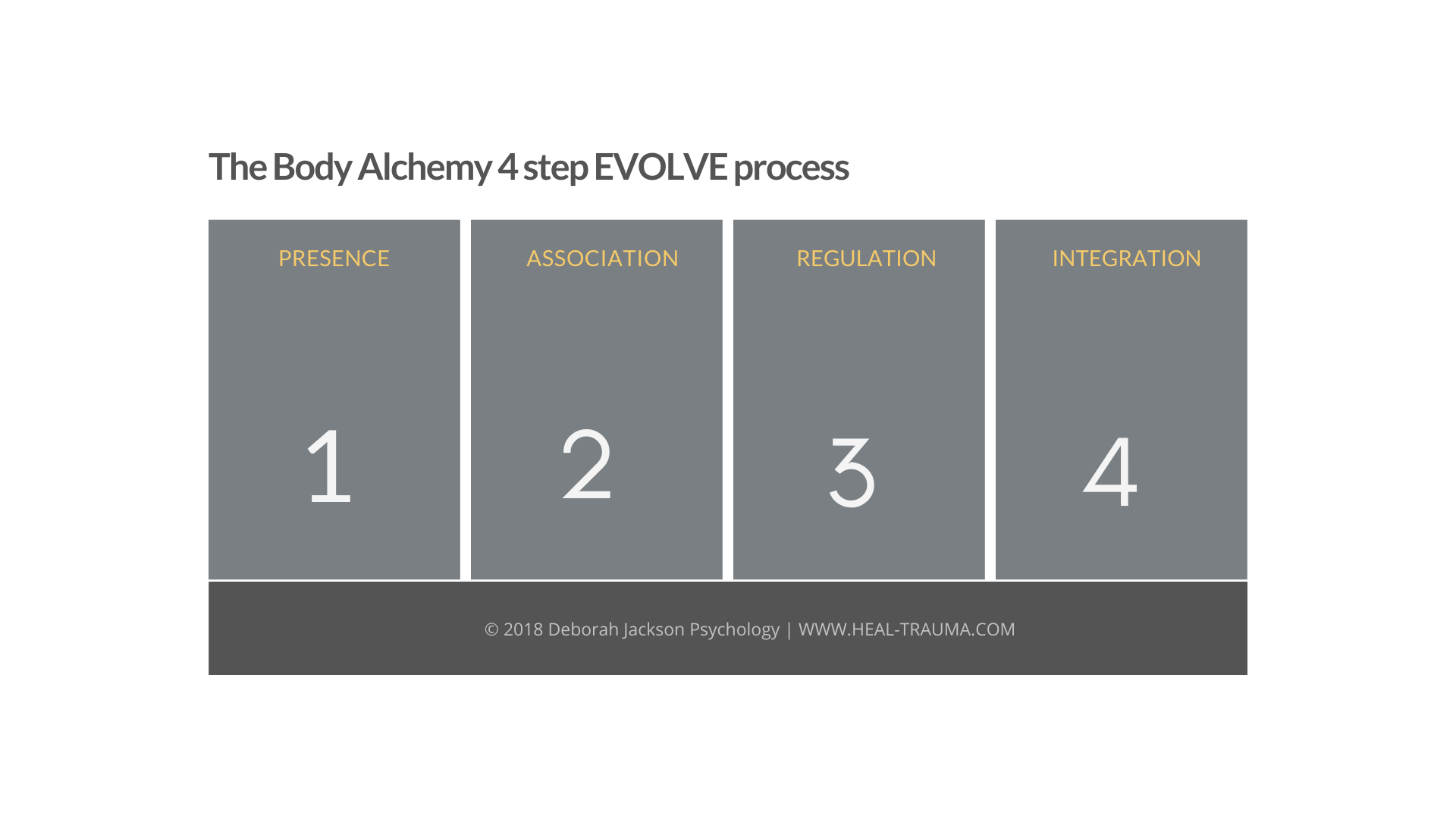
Provide structure for your students to learn and apply new skills, at both a macro and micro level.
The signature processes are designed to promote whole brain harmony as client works toward increasing their window of tolerance / presence.
The signature processes are designed to promote whole brain harmony as client works toward increasing their window of tolerance / presence.
5 zones - Dynamic ECO-system
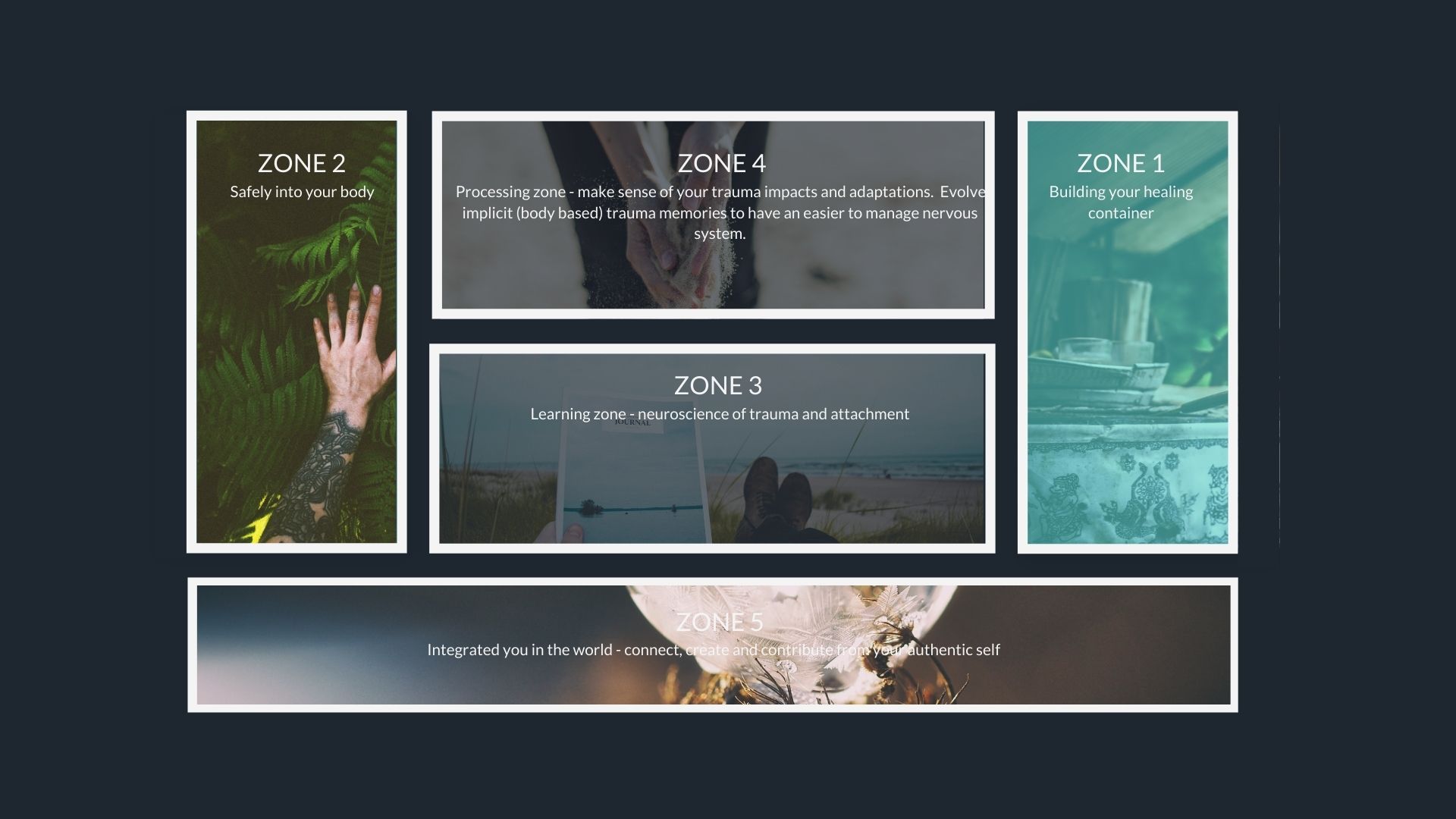
The 5 zones of the Rewire 4 Life model work together to create a dynamic ECO-system to prepare for and process traumatic imprints and to integrate new experiences.
Community

In house community space for discussion and sharing of learning experience. Guidance in each module on what and how to share and listen.
Beautiful workbooks
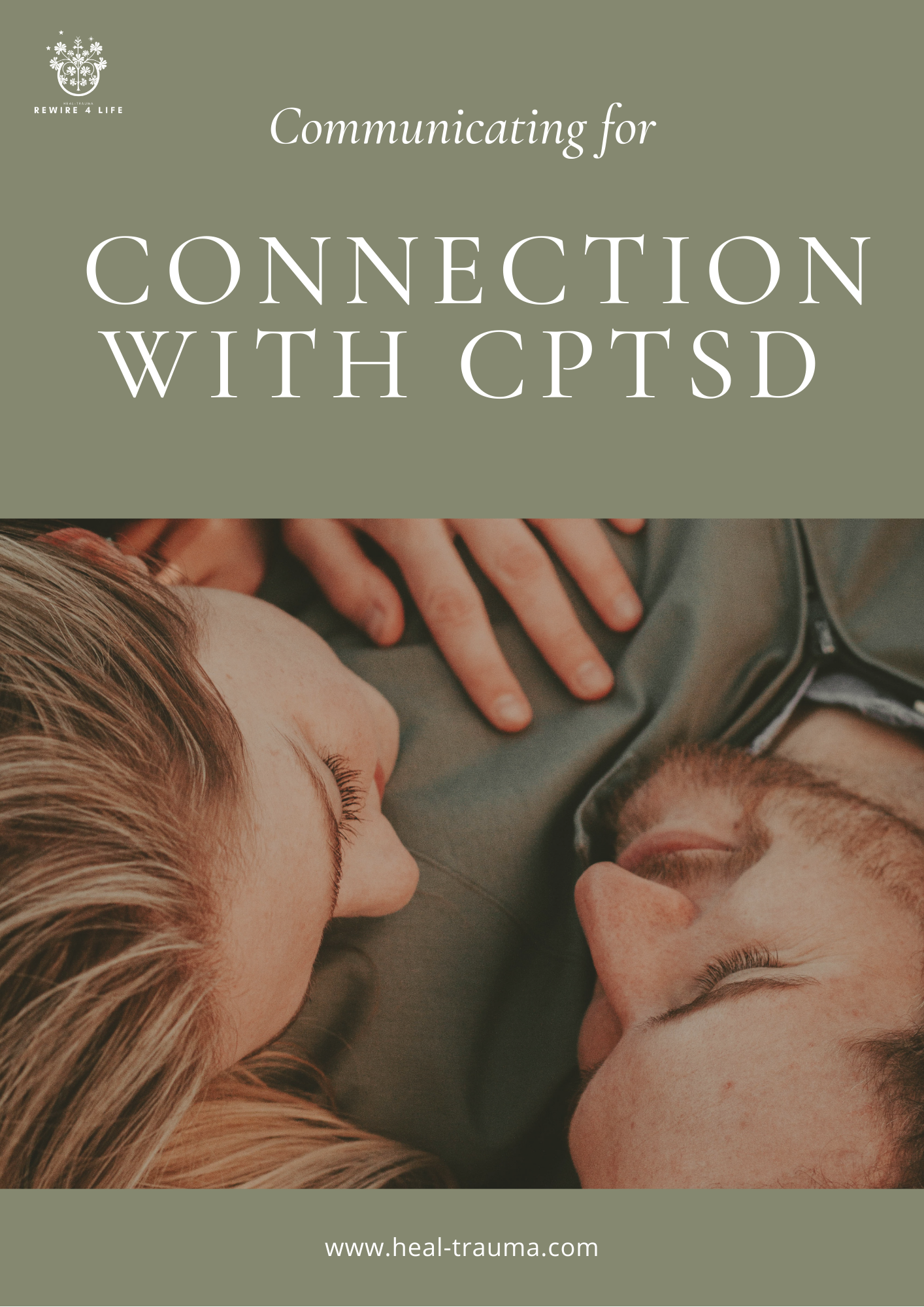
To contain and deepen the learning experience.
Video and audio tutorials and guided practices
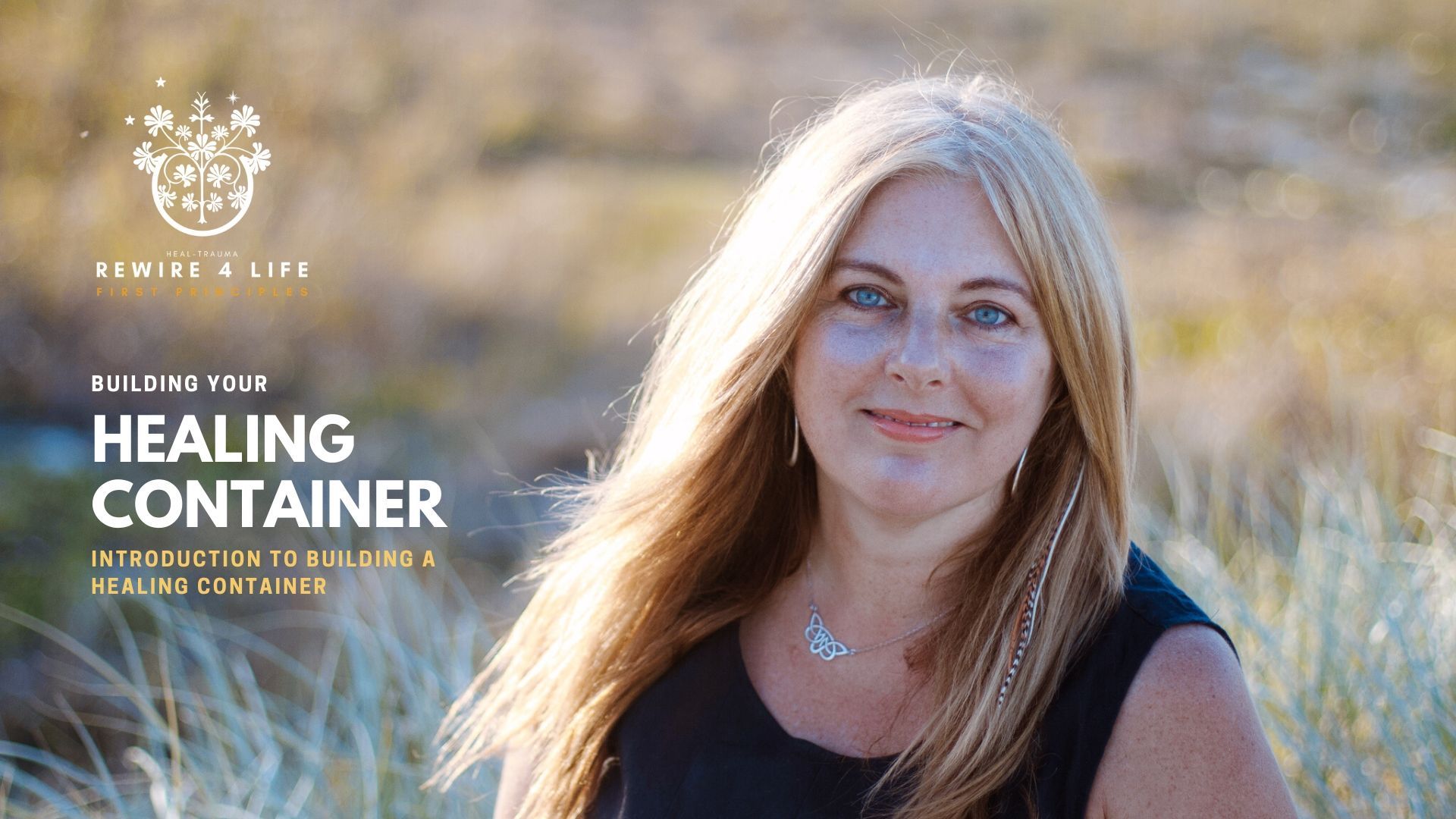
To share information and context. And to guide students through a personal experience of all the practices, in order that they can better support clients to do the same.
Learn more about Rewire 4 Life course structure & outline.

Get in touch - what can we make happen together?
Thank you!
How can you tell if someone is trauma impacted?
These days we are somewhat informed about PTSD (Post-traumatic Stress Disorder) in terms of nervous system impacts following overwhelming and threatening events. It's most commonly understood as something that can happen after war service or a natural disaster or an isolated incidence of violence.
However, advances in neuroscience are now helping us understand things that clinicians in the field have known for a long time.
There is a more insidious form of trauma - Complex PTSD - complex because it happened during development years, affecting the way a person's brain and nervous system develop and complex because the damage tends to from someone who should be safe or keeping the child or young person safe.
A Psychologist can diagnose Complex PTSD and the upcoming revision to the World Health Organisation classification of diseases, ICD-11 has a new diagnostic code to cover it - 6B41.
I have created a Trauma Impacts checklist that people can use to begin to self-identify trauma impacts, prior to meeting with a therapist.
You can click through to download and browse the Checklist here.
However, advances in neuroscience are now helping us understand things that clinicians in the field have known for a long time.
There is a more insidious form of trauma - Complex PTSD - complex because it happened during development years, affecting the way a person's brain and nervous system develop and complex because the damage tends to from someone who should be safe or keeping the child or young person safe.
A Psychologist can diagnose Complex PTSD and the upcoming revision to the World Health Organisation classification of diseases, ICD-11 has a new diagnostic code to cover it - 6B41.
I have created a Trauma Impacts checklist that people can use to begin to self-identify trauma impacts, prior to meeting with a therapist.
You can click through to download and browse the Checklist here.
Write your awesome label here.

